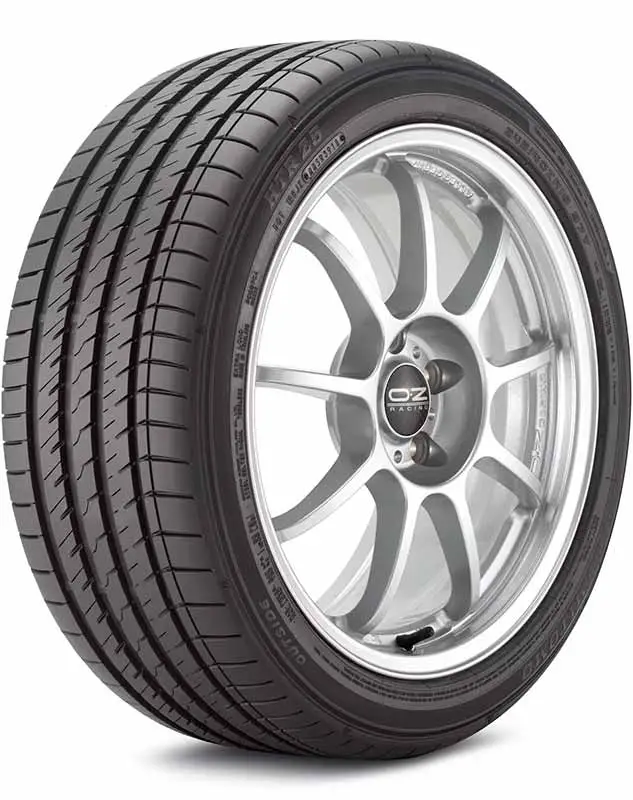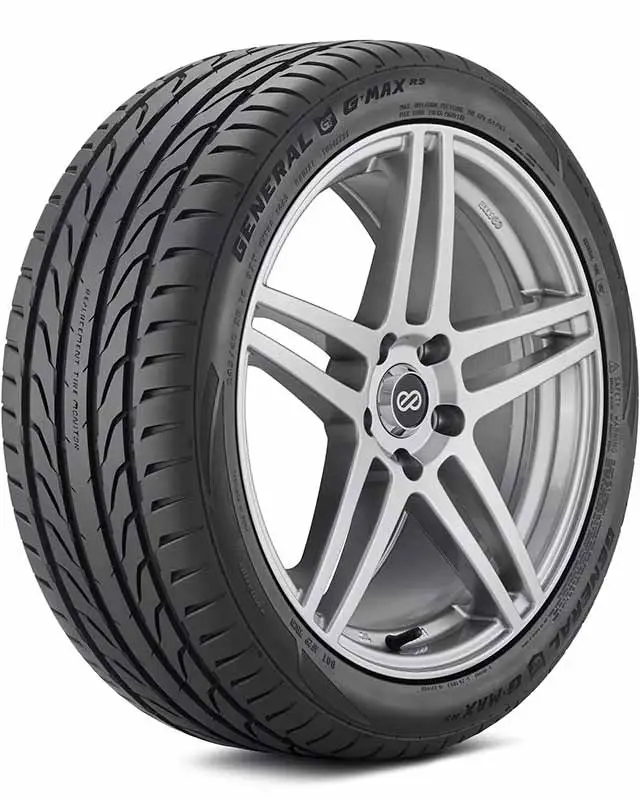Have you ever found yourself staring at your tires, wondering if they’re equipped to handle the unpredictable whims of Mother Nature? Whether it’s the blazing summer heat or the icy grip of winter, the right tires can make all the difference.
How To Tell If You Have All Season Tires?
All season tires are almost always labeled with the words “All-Season” or the abbreviation “A/S”.
They may also carry the Three Peak Mountain Snowflake symbol, indicating a certain level of snow performance.
In this article, we’ll explore the distinct characteristics of all season tires, delve into their benefits and limitations, and offer expert tips for safe winter driving. Equip yourself with the knowledge to make informed decisions for a smoother, safer ride.
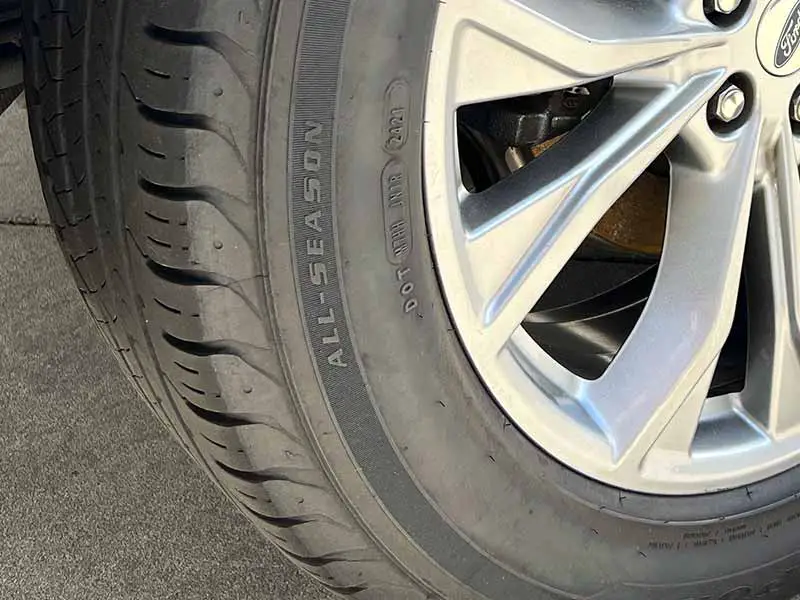
Understanding Tire Types
Choosing the right tire for your vehicle is crucial, not just for performance but also for safety. With so many options available, it’s essential to understand the differences and benefits of each tire type.
All Season Tires
All season tires are designed to provide balanced performance in a variety of conditions, from sunny days to light snow. Their tread patterns are crafted to offer a comfortable ride, good tread life, and efficient fuel economy. If you’re considering investing in all season tires, our comprehensive buying guide offers insights into the top choices available.
Benefits:
- Versatile performance in both wet and dry conditions.
- Suitable for regions with mild winter conditions.
- Cost-effective for drivers who prefer not to switch tires seasonally.
Limitations:
- Might not offer optimal grip in extreme winter weather conditions.
- Not as specialized as dedicated summer or winter tires.
Winter Tires (Snow Tires)
Winter tires, often referred to as snow tires, are specifically designed to perform in cold temperatures and snowy conditions. Their tread patterns and rubber compounds are optimized for grip on snow and ice. Curious about how all season tires perform in snow? Check out our article on all season tires in snow.
Benefits:
- Superior traction in winter conditions.
- Designed to remain flexible in cold temperatures, ensuring better grip.
Limitations:
- Not ideal for warm weather as they can wear out faster.
Summer Tires
Summer tires are crafted for performance in warm conditions. They offer excellent grip on both wet and dry roads, thanks to their specialized tread patterns. However, they’re not designed for cold temperatures. Understand the differences between all season and summer tires to make an informed decision.
Benefits:
- Optimal performance in warm temperatures.
- Enhanced grip on wet roads.
Limitations:
- Not suitable for winter driving.
Expert Tip: While all season tires offer versatility, it’s essential to consider your region’s climate and your driving habits. If you frequently encounter snow and icy conditions, investing in dedicated winter tires might be a wise choice.
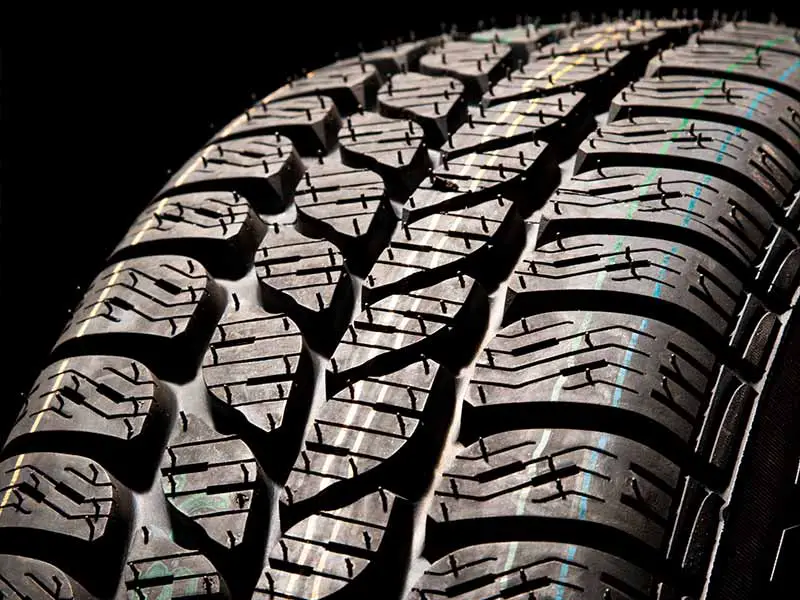
Identifying All Season Tires
Being able to distinguish all season tires from other tire types is essential for making informed decisions. Here’s how you can identify them:
Tread Patterns
All season tires have unique tread patterns that set them apart. These patterns are designed to handle a variety of road conditions, from wet to dry and light snow.
- Symmetrical Design: All season tires often feature a symmetrical tread design, which provides even wear and a smooth ride.
- Wide Circumferential Grooves: These grooves help in channeling water away from the tire’s surface, reducing the risk of hydroplaning in wet conditions.
- Siping: Small slits in the tread blocks, known as sipes, offer additional biting edges for better traction on snow and ice.
For a deeper dive into how all season tires perform in snowy conditions, explore our guide on the best all season tires for snow.
Three Peak Mountain Snowflake Symbol (3PMSF)
This symbol is a certification mark found on tires that meet specific performance criteria in snow testing. While it’s commonly seen on winter tires, some all season tires also carry this symbol, indicating they offer a certain level of snow performance. However, it’s crucial to note that not all all season tires have this certification. To understand more about the differences and nuances, read our article on the difference between all season and all-weather tires.
Benefits of the Symbol:
- Assurance of Performance: Tires with this symbol have been tested and meet the required performance in snow conditions.
- Informed Decisions: This symbol can guide buyers in regions with occasional snowfall, helping them choose a tire that offers both versatility and winter performance.
Limitations:
- Not a Replacement for Winter Tires: While the symbol indicates good performance in snow, it doesn’t mean the tire can replace dedicated winter tires in extreme conditions.
Expert Insight: Always check the sidewall of the tire for symbols and certifications. While tread patterns can give you an idea, certifications like the Three Peak Mountain Snowflake offer a more definitive assurance of the tire’s capabilities.
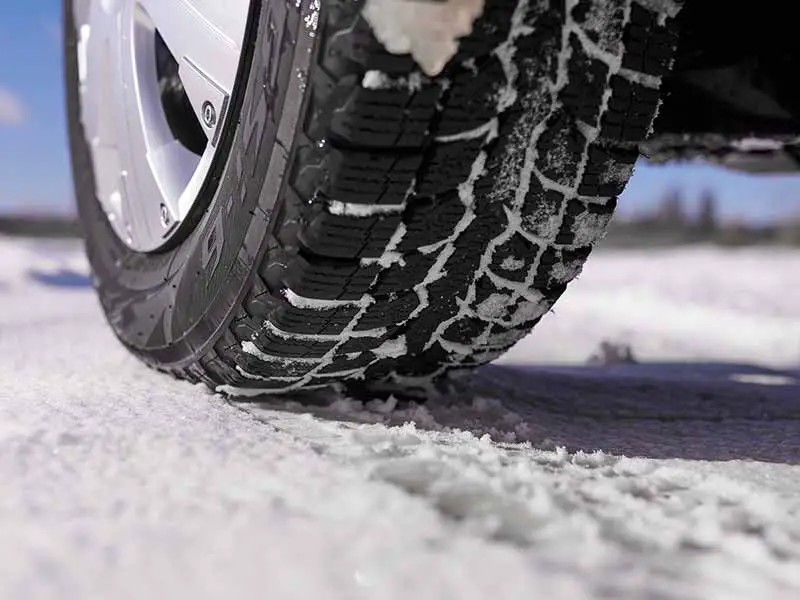
Benefits of All Season Tires
All season tires are a popular choice among drivers for several compelling reasons. Their versatility and adaptability to various road conditions make them a preferred option for many. Here’s a closer look at their advantages:
Versatility in Diverse Conditions
All season tires are designed to perform admirably in a range of conditions, from sunny days to light snowfall. Their tread patterns and rubber compounds strike a balance between the specialized designs of summer and winter tires.
- Wet and Dry Performance: Their tread design efficiently channels water, reducing hydroplaning risks and offering stable performance on both wet and dry roads.
- Snow and Ice: While they aren’t a replacement for dedicated winter tires, many all season tires offer decent traction on light snow and icy roads, especially those with the Three Peak Mountain Snowflake symbol.
Cost-Effectiveness
For drivers living in regions with mild weather conditions year-round, all season tires can be a cost-effective choice. They eliminate the need for seasonal tire changes, leading to savings in both time and money.
- Longer Tread Life: All season tires often come with a longer tread life compared to specialized seasonal tires, offering better value for money.
- Reduced Maintenance: With no need for bi-annual tire changes, vehicle owners can save on maintenance costs.
Comfort and Noise Reduction
All season tires are engineered to provide a comfortable driving experience. Their tread patterns are optimized to reduce road noise, ensuring a quieter ride.
- Smooth Ride: The balanced design of all season tires ensures a smooth ride, irrespective of the road condition.
- Noise Dampening: Their construction helps in minimizing vibrations and road noise, enhancing the overall driving experience.
Expert Recommendation: If you’re seeking a tire that offers a blend of performance, comfort, and value, all season tires might be the right choice. However, always assess your driving conditions and consult our comprehensive buying guide to make an informed decision.

Limitations of All Season Tires
While all season tires offer a multitude of benefits, it’s essential to understand their limitations. This knowledge ensures that drivers make informed decisions based on their specific needs and driving conditions.
Performance in Extreme Winter Weather
All season tires are designed to handle a variety of conditions, but they may not be the best choice for extreme winter weather.
- Traction on Thick Snow and Ice: While they can handle light snow, their performance may be compromised on thick snow and icy roads. Dedicated winter tires, with their specialized tread patterns and rubber compounds, are better equipped for such conditions.
- Flexibility in Cold Temperatures: The rubber compounds in all season tires may not remain as flexible in extremely cold temperatures as those in winter tires, affecting grip and performance.
For a more in-depth understanding of how all season tires fare in snowy conditions, our article on all season tires in snowprovides valuable insights.
Not as Specialized as Dedicated Tires
While all season tires offer versatility, they don’t specialize in any particular season, which means:
- Summer Performance: They might not provide the same level of grip and performance as dedicated summer tires in very hot conditions.
- Winter Performance: As mentioned, in extreme winter conditions, dedicated winter tires outperform all season tires.
Tread Wear in Specific Conditions
Certain driving conditions can accelerate the wear of all season tires.
- High Temperatures: Prolonged driving in extremely hot conditions can lead to faster tread wear.
- Rough Terrains: All season tires might not be the best choice for off-road or rough terrains, leading to quicker wear and potential damage.
Expert Insight: While all season tires are a fantastic choice for many drivers, it’s crucial to evaluate your specific driving conditions and needs. In certain scenarios, investing in dedicated seasonal tires might offer better performance and safety.

Frequently Asked Questions
- What is the difference between all season and winter tires? All season tires are versatile, designed to handle a variety of conditions from wet to dry roads and light snow. Winter tires, however, are specifically crafted for cold temperatures and snowy conditions, offering superior traction on snow and ice.
- What are the benefits of winter tires? Winter tires provide enhanced grip and traction in cold temperatures, snowy, and icy conditions. Their tread patterns and rubber compounds are optimized for winter driving, ensuring safety and performance.
- What symbol is on all season tires? Some all season tires carry the Three Peak Mountain Snowflake symbol, indicating they meet specific snow performance criteria. However, not all all season tires have this certification.
- What is the difference between regular tires and all season tires? Regular tires, often referred to as summer tires, are designed for warm conditions and offer optimal performance on wet and dry roads. All season tires, on the other hand, are versatile and designed to handle a range of conditions, including light snow.
- Can I use all-season tires in summer? Yes, all season tires can be used in summer. They provide balanced performance in various conditions, including warm weather. However, for optimal performance in hot conditions, summer tires might be more suitable.
Resources
Below are some links you may find helpful when learning about tires:
- Comparing Winter & Snow Tires vs. All-Season Tires – Bridgestone Tires
- Are All-Season Tires Okay in the Snow? – Les Schwab
Final Thoughts
Navigating the world of tires can be daunting, but with the right knowledge, you can make informed decisions that enhance your driving experience.
Understanding the characteristics, benefits, and limitations of all season tires empowers you to choose the best fit for your vehicle and driving conditions.
Remember, while all season tires offer versatility, it’s essential to assess your specific needs, especially if you frequently encounter extreme weather conditions.
Good luck and happy motoring.



